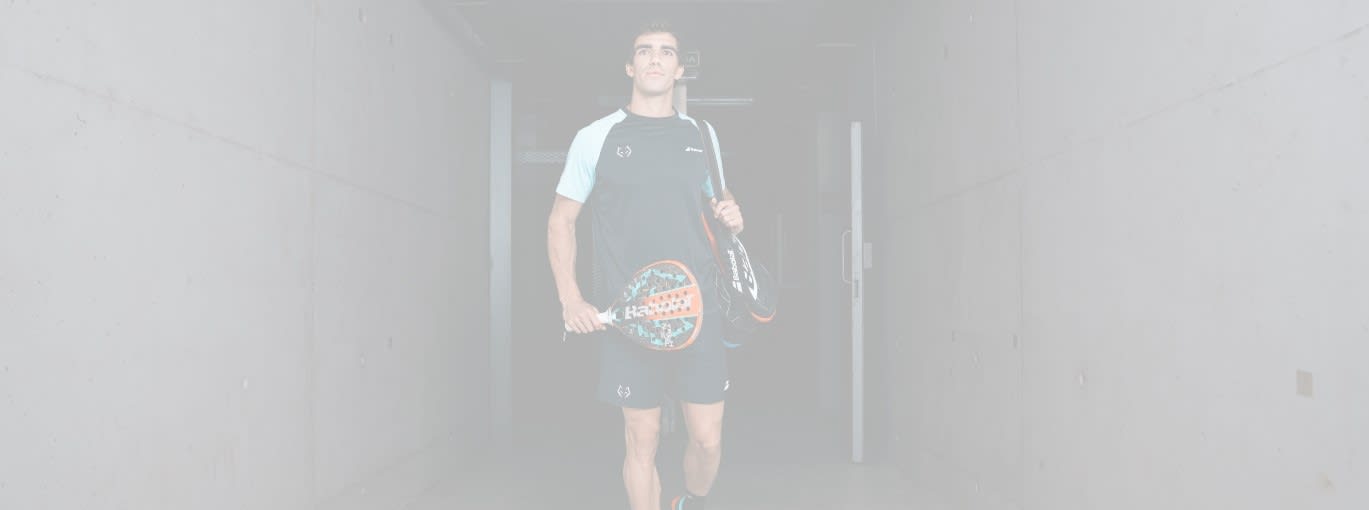Ever since he started playing padel at age eight, Juan Lebrón has never stopped working on his game. And now at 29, he is a legend of the sport.
But padel isn’t the only thing in Lebrón’s blood: there’s also music. And without one, there wouldn’t be the other.
‘Whether I’m travelling or at home, music helps me relax, it helps me concentrate, it helps me clear my head, it motivates me and it helps me dream beautiful dreams. It means the world to me,’ he says. ‘I’ve always liked it, ever since I was a kid, I’ve found music and sport have a lot in common. It’s not just that you have to work really hard to be good in both. As activities, they complement each other.’Lebrón has found that music greatly helps his padel. His sport psychologist told him that ‘before each competition I should listen to music and simultaneously visualise the best strokes I’ve played in previous games, to get myself 100 per cent focused on producing another top performance. Without music, I couldn’t do that.’
Electronic music heads his current playlist of preferred styles – or maybe that should be ‘lists’. ‘I have a lot of favourite singers, so many I wouldn’t be able to name one in particular, although right now I’m listening a lot to Tales of Us and Solomun.’ Music is a fundamental part of Lebrón’s family life back home in the coastal town of Puerto de Santa María in Andalusia, where Spain's most traditional genre, flamenco, has deep cultural and social roots. ‘My family are all fans, they take me to flamenco clubs, my sister Isabel Pilar is the best flamenco dancer I’ve seen - I wish some of her dancing talent would rub off on me,’ he says with a grin.
‘We own a bit of land in the country, and sometimes we invite friends who are really good flamenco singers, real artists, to come with us and we’ll have a proper flamenco fiesta.’ Lebrón’s family didn’t just give him the music bug: they were also instrumental in getting him started at padel. As part of Puerto de Santa María’s thriving padel scene, ‘my father played with his friends and I used to watch,’ he recalls, ‘although to be honest as a young kid I played more football than padel. My parents insisted that I study hard, too. It wasn’t until I was 16 or so, that I realised playing padel professionally was the way I wanted to go.’
He believes getting sponsored by Babolat was crucial in his development. ‘We first got in touch at the World Championships in Cascais in 2016, and working with them has really helped me grow and improve massively as a player. Every time I’ve met Eric Babolat he’s treated me very well and he always sends me messages of support. I’m very lucky to be in the Babolat family, and want to be in it for a very long time.’ But despite being a leading padel competitor – he was the first Spanish-born player to top the WPT men’s rankings – his love of another sport runs deep, too. If he had not discovered padel, Lebrón says he would have tried to be a professional football player, ‘probably playing centre-forward’.
A lifelong supporter of top Spanish football team Betis,he was in the stadium in March 2020 when Betis beat the mighty Real Madrid 2-1.As it happens, he has lived in Madrid since he began his professional career, but Puerto de Santa María remains ‘the one special place of my life. It’s got so much going for it,’ he says. ‘Beaches, bars, wonderful food – the pescaito frito [freshly fried fish] is exceptional. But best of all are the people, who are very kind-hearted. I think my future will be in Madrid, but I’ll always try to split my time between the two places.’
Wherever Lebrón goes, though, there’s sure to be music playing in the background.
Team babolat pro players may play with a customized or different model than the equipment depicted.




